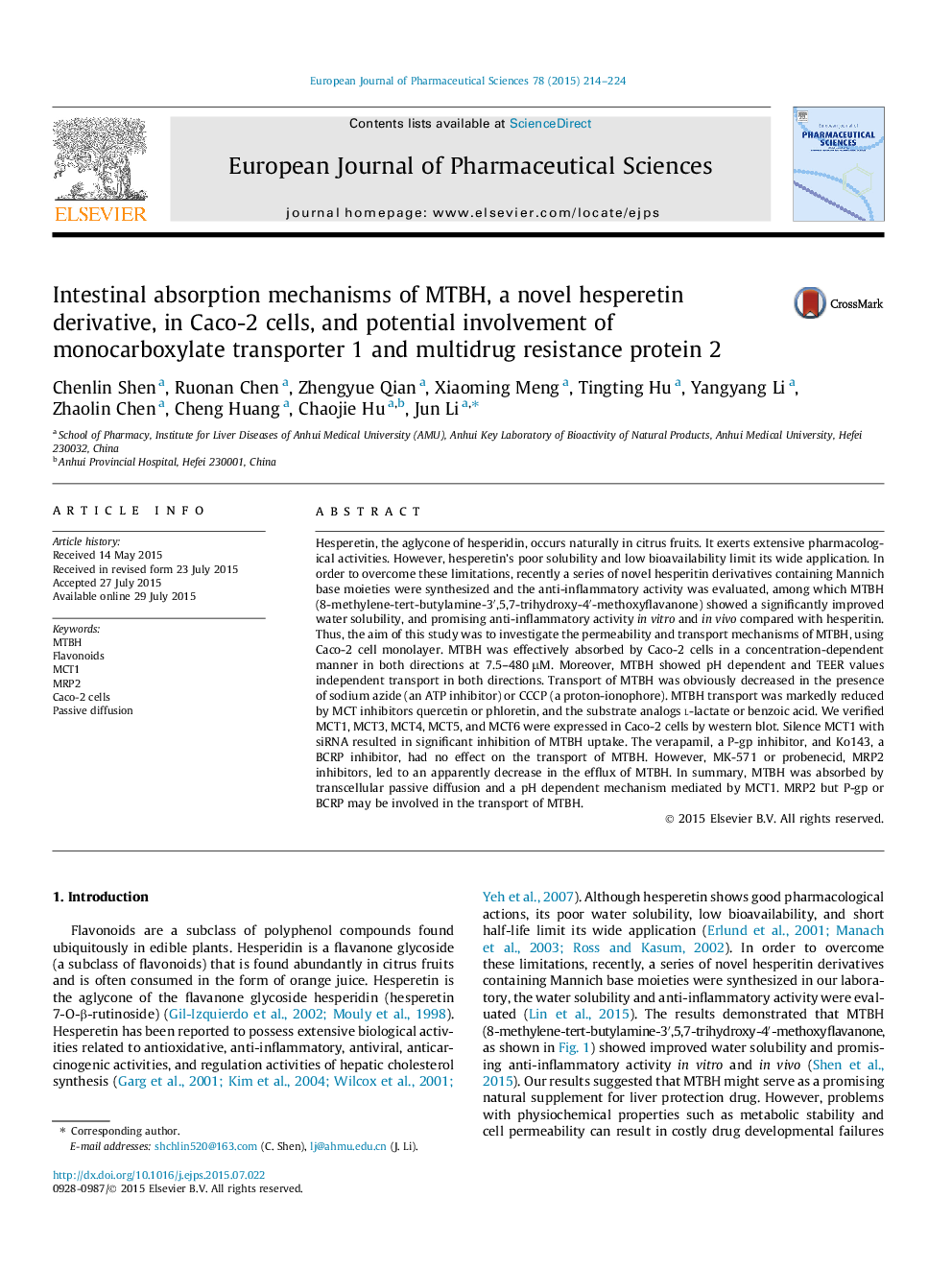| کد مقاله | کد نشریه | سال انتشار | مقاله انگلیسی | نسخه تمام متن |
|---|---|---|---|---|
| 2480209 | 1556172 | 2015 | 11 صفحه PDF | دانلود رایگان |

Hesperetin, the aglycone of hesperidin, occurs naturally in citrus fruits. It exerts extensive pharmacological activities. However, hesperetin’s poor solubility and low bioavailability limit its wide application. In order to overcome these limitations, recently a series of novel hesperitin derivatives containing Mannich base moieties were synthesized and the anti-inflammatory activity was evaluated, among which MTBH (8-methylene-tert-butylamine-3′,5,7-trihydroxy-4′-methoxyflavanone) showed a significantly improved water solubility, and promising anti-inflammatory activity in vitro and in vivo compared with hesperitin. Thus, the aim of this study was to investigate the permeability and transport mechanisms of MTBH, using Caco-2 cell monolayer. MTBH was effectively absorbed by Caco-2 cells in a concentration-dependent manner in both directions at 7.5–480 μM. Moreover, MTBH showed pH dependent and TEER values independent transport in both directions. Transport of MTBH was obviously decreased in the presence of sodium azide (an ATP inhibitor) or CCCP (a proton-ionophore). MTBH transport was markedly reduced by MCT inhibitors quercetin or phloretin, and the substrate analogs l-lactate or benzoic acid. We verified MCT1, MCT3, MCT4, MCT5, and MCT6 were expressed in Caco-2 cells by western blot. Silence MCT1 with siRNA resulted in significant inhibition of MTBH uptake. The verapamil, a P-gp inhibitor, and Ko143, a BCRP inhibitor, had no effect on the transport of MTBH. However, MK-571 or probenecid, MRP2 inhibitors, led to an apparently decrease in the efflux of MTBH. In summary, MTBH was absorbed by transcellular passive diffusion and a pH dependent mechanism mediated by MCT1. MRP2 but P-gp or BCRP may be involved in the transport of MTBH.
Figure optionsDownload high-quality image (69 K)Download as PowerPoint slide
Journal: European Journal of Pharmaceutical Sciences - Volume 78, 12 October 2015, Pages 214–224